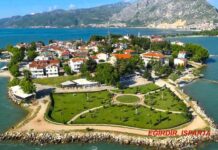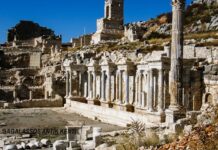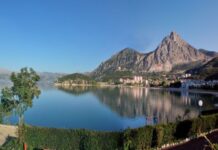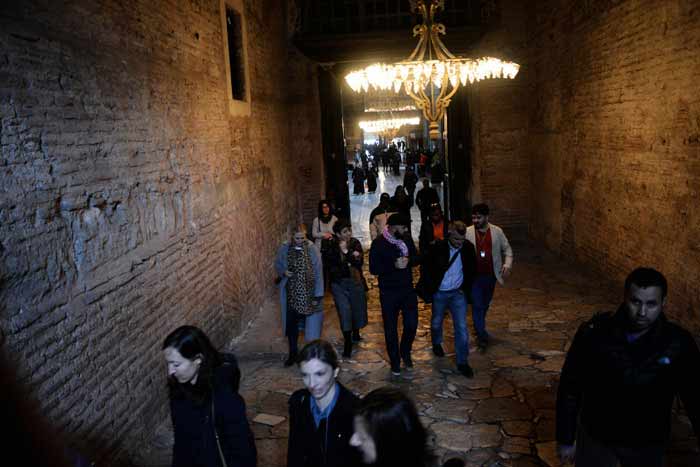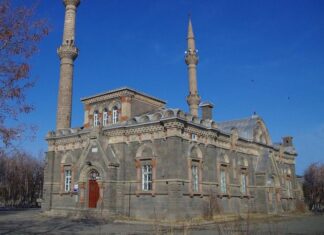III In such manner did God on that occasion grant the ruler an astounding victory. When the Byzantines saw him enter the city, they shouted with joy for they were astonished at the swiftness, the boldness and the cleverness of the undertaking and the immediate victory, they sang paeans, they leapt, and praised God for having given them such a saviour and benefactor. But Melissenus Nicephorus was annoyed at this and took it ill-such is human nature-and said, ” This victory is a fruitless joy to us and a harmless grief to them.” And indeed the Scythians, who were innumerable and dispersed all over the West, continued to ravage all the provinces and none of the disasters that had befallen them checked their unbridled audacity in the slightest.
Now and again they would even seize small towns in the West, nor did they spare the villages in the neighbourhood of the Queen of Cities, for they even advanced to the one called Bathys Rhyax where stands the sanctuary sacred to the memory of Theodore, greatest of all martyrs. Every day a good many people used to go there to make intercession to the saint, and on Sundays the pious journeyed to the shrine in crowds and spent all day and night there lodging round it, or in the porch, or in the back chamber of the church. But the onward rush of the Scythians prevailed to such an extent that the people who wanted to go to the martyr’s church did not even dare to open the gates of Byzantium because of the Scythians’ frequent incursions.
The Emperor on land in the West
These indeed were the troubles which beset the Emperor on land in the West, and even at sea matters were far from calm for him, but on the contrary very disturbed as Tzachas had acquired another fleet and was sacking the coast towns. For these reasons, the Emperor was harassed and distressed, for he was beset by troubles on every side. And then news was brought to him that Tzachas had now collected a larger fleet from the maritime districts, and devastated the islands he had previously captured, and that he had further begun to consider an attack on the western provinces, and was sending envoys to the Scythians advising them to seize the Chersonese.
The mercenary troops which had come to the Emperor’s aid from the East, I mean the Turks, not even these did Tzachas allow to keep their treaty with the Emperor unbroken, but coaxed them with specious promises to desert the Emperor, and come over to him, as soon as he had seized the barley-crop. The Emperor heard this and felt that his affairs on land and sea were in a very parlous condition. And an exceptionally severe winter was blocking up all the roads to such a degree that even the doors of houses could not be opened, because of the weight of snow lying against them (it happened that there had been a very heavy fall, heavier than anyone had ever seen before).
Read More about Domestic Conflicts part 21

